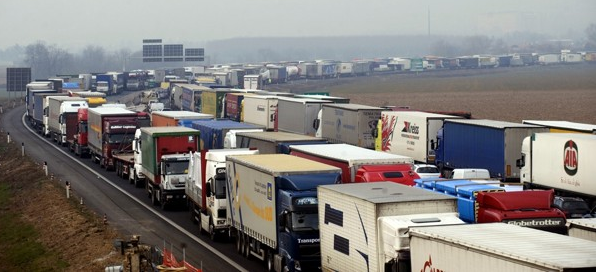European Clean Diesel Vehicles Key to Meeting CO2 Emission Reduction Targets
Carbon Dioxide (CO2) emissions decreased 2.6 percent throughout the European Union (EU) in 2012 as the “dieselization” of the EU car fleet continued along with more efficient gasoline and alternative fuel vehicles, according to preliminary data compiled by the European Environment Agency (EEA).
Explained Allen Schaeffer, the Executive Director of the Diesel Technology Forum, “In 2012, diesels made up almost 55 percent of the European car market compared to 31 percent in 2000, which is a huge shift toward diesel vehicles.
 “As the US moves toward implementing the 54.5 mpg fuel efficiency standard and vehicle CO2 standards – the last decade of European experience is highly instructive. This report concludes that … “in spite of the increase in the mass of vehicles, dieselization and improved vehicle technology have led to greater fuel efficiency and lower overall CO2 emissions.”
“As the US moves toward implementing the 54.5 mpg fuel efficiency standard and vehicle CO2 standards – the last decade of European experience is highly instructive. This report concludes that … “in spite of the increase in the mass of vehicles, dieselization and improved vehicle technology have led to greater fuel efficiency and lower overall CO2 emissions.”
“Monitoring CO2 Emissions from New Passenger Cars in the EU: Summary Data for 2012” includes new information from EU Member States passenger car registrations. The data is used to evaluate the performance of the 2012 vehicle fleet and measure it progress toward meeting the CO2 emissions target of 130 grams of CO2 per kilometer by 2015 under the Kyoto Protocol adopted in 2007. The current data is provisional and is being sent to car manufacturers for verification with the final report to be issued later this year.
According to the EEA report, some of the key findings of the 2012 data include:
- The “dieselization” of the EU fleet is continuing with 54.9 percent of the vehicles registered in Europe in 2012 being diesels.
- Petrol cars were 42.9 percent and alternative fuel vehicles (AFV) included 2.2 percent of the EU vehicle market (see Chart 1 below).
- Car manufacturers reduced CO2 emissions 2.6 percent with a 2012 average of 132.2 grams of CO2 per kilometer (gCO2/km) – a 3.5 gCO/km decrease from 2011 (135.7).
- The EU target for 2015 is 130 gCO2/km and 95 gCO2/km by 2020.
- The average CO2 emissions of diesel vehicles decreased 2.8 gCO2/km in 2012 compared to 2011
Clean Diesel Technology Continues To Achieve Efficiency Gains & Emissions Reductions
New diesel technology is making major advancements in improving fuel efficiency and lowering emissions. The EEA data outlines the continued reductions in CO2 emissions from diesel cars and new improvements are continuing in reducing nitrogen oxides (NOx) and particulate matter (PM) emissions.
 “The U.S. auto market is significantly different than the European situation with slightly more than three percent of passenger vehicles being diesels,” Schaeffer said. “But the U.S. market will almost double the number of clean diesels in the next 18 months and some market analysts predict diesels could increase to 10 percent of the total U.S. market by 2018.
“The U.S. auto market is significantly different than the European situation with slightly more than three percent of passenger vehicles being diesels,” Schaeffer said. “But the U.S. market will almost double the number of clean diesels in the next 18 months and some market analysts predict diesels could increase to 10 percent of the total U.S. market by 2018.
“Diesel passenger vehicle registrations have increased by more than 24 percent in the U.S. between 2010 and 2012.
“This projected increase in diesel popularity in the U.S. is based on a number of positive reasons including the fact that diesel cars are 20 to 40 percent more efficient than gasoline cars and the new U.S. mileage standards will enhance auto manufacturers to bring more diesel cars to the U.S. market allowing drivers a more diverse selection of selections,” Schaeffer said.
ABOUT THE DIESEL TECHNOLOGY FORUM
The Diesel Technology Forum is a non-profit national organization dedicated to raising awareness about the importance of diesel engines, fuel and technology. Forum members are leaders in clean diesel technology and represent the three key elements of the modern clean-diesel system: advanced engines, vehicles and equipment, cleaner diesel fuel and emissions-control systems. For more information visit www.dieselforum.org .
Category: Fuel & Oil, General Update, Green









